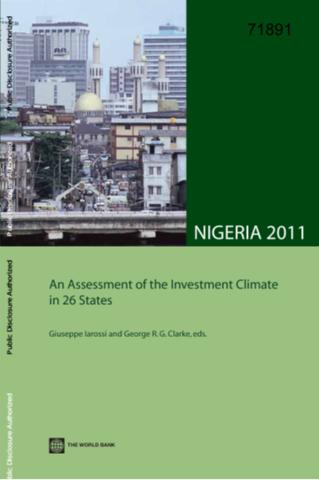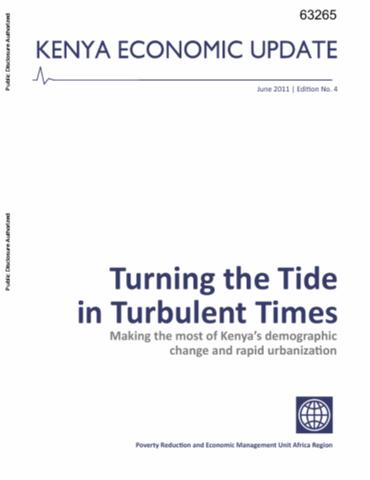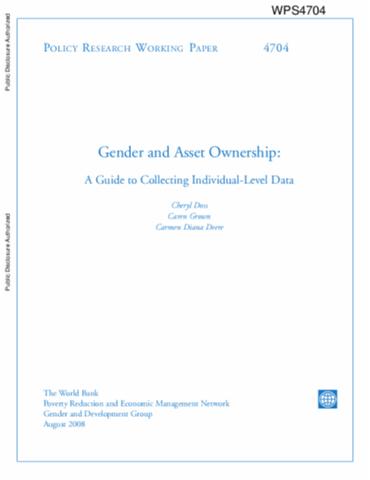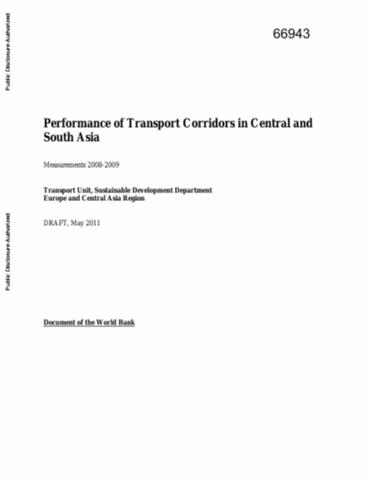The World Bank is a vital source of financial and technical assistance to developing countries around the world. We are not a bank in the ordinary sense but a unique partnership to reduce poverty and support development. The World Bank Group has two ambitious goals: End extreme poverty within a generation and boost shared prosperity.
- To end extreme poverty, the Bank's goal is to decrease the percentage of people living on less than $1.25 a day to no more than 3% by 2030.
- To promote shared prosperity, the goal is to promote income growth of the bottom 40% of the population in each country.
The World Bank Group comprises five institutions managed by their member countries.
The World Bank Group and Land: Working to protect the rights of existing land users and to help secure benefits for smallholder farmers
The World Bank (IBRD and IDA) interacts primarily with governments to increase agricultural productivity, strengthen land tenure policies and improve land governance. More than 90% of the World Bank’s agriculture portfolio focuses on the productivity and access to markets by small holder farmers. Ten percent of our projects focus on the governance of land tenure.
Similarly, investments by the International Finance Corporation (IFC), the World Bank Group’s private sector arm, including those in larger scale enterprises, overwhelmingly support smallholder farmers through improved access to finance, inputs and markets, and as direct suppliers. IFC invests in environmentally and socially sustainable private enterprises in all parts of the value chain (inputs such as irrigation and fertilizers, primary production, processing, transport and storage, traders, and risk management facilities including weather/crop insurance, warehouse financing, etc
For more information, visit the World Bank Group and land and food security (https://www.worldbank.org/en/topic/agriculture/brief/land-and-food-security1
Resources
Displaying 4596 - 4600 of 4907Nigeria 2011
This investment climate analysis reviews the experiences of over 3000 surveyed business owners in 26 states of Nigeria about the aspects of the business climate that affect their businesses. It complements a similar study in 2007 that covered 11 other Nigerian states. The survey asks business owners about both their perceptions and the actual costs of selected constraints. The analysis benchmarks Nigeria against comparator countries, and provides detailed data for each state. Nigerian firms have low productivity, as measured by their output in relation to their labor and capital inputs.
Kenya Economic Update, June 2011, Edition No. 4
Over the last decade, Kenya's society and economy have changed fundamentally and these deep trends will continue. Rapid population growth and urbanization will create many new challenges which need to be managed well to support Kenya's economic take-off in the medium-term. This fourth edition of the Kenya economic update argues that Kenya can turn the tide in turbulent times and make the most of the ongoing structural shifts.
Gender and Asset Ownership : A Guide to Collecting Individual-Level Data
Ownership and control over assets such as land and housing provide direct and indirect benefits to individuals and households, including a secure place to live, the means of a livelihood, protection during emergencies, and collateral for credit that can be used for investment or consumption. Unfortunately, few studies - either at the micro or macro levels- examine the gender dimensions of asset ownership. This paper sets out a framework for researchers who are interested in collecting data on individual level asset ownership and analyzing the gender asset gap.
MEMO TO THE MAYOR – Improving Access to Urban Land for All Residents: Fulfilling the Promise
As the world is urbanizing, many cities are grappling with a population that is growing rapidly, thereby increasing demand for land and housing. This pressure on land and housing markets often is exacerbated by inappropriate or inadequate policies. The result is a supply of well-located land and housing that falls well short of demand and the proliferation of poorly serviced informal settlements, many of which are located far from jobs, city services and amenities.
Performance of Transport Corridors in Central and South Asia
This study is part of the ongoing dialogue on reforming trade logistics, and facilitating trade and transportation in Central and South Asian countries. It presents key findings from several rounds of first-hand observations and interviews conducted with multiple stakeholders to measure the performance of key road transport corridors across the region, including Kazakhstan, Kyrgyz Republic, Tajikistan, and to some extent, Pakistan and Afghanistan.










